Venezuela and its freedom of political thought at a dead end
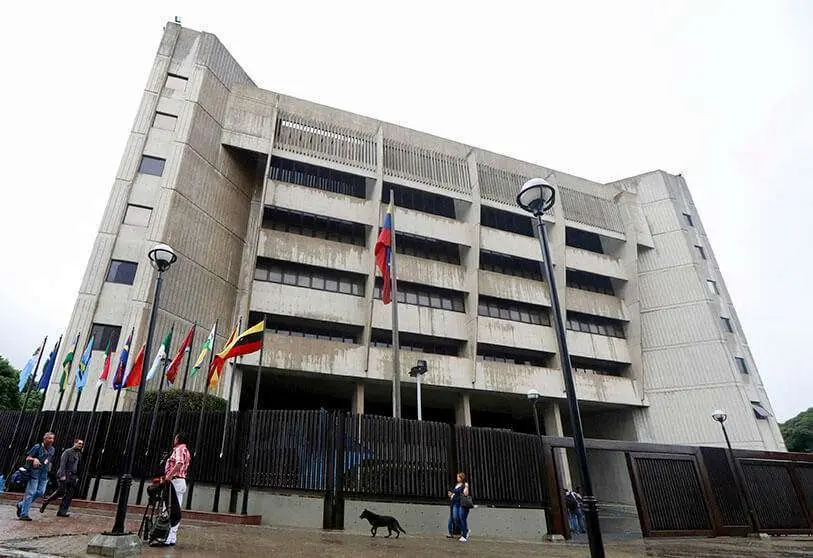
And back to the drawing board. The announcement by the Venezuelan Electoral Council to call new parliamentary elections for December 6 has kicked off the countdown to the election of the next president of the National Assembly, the seat of legislative power and the only institution controlled by the opposition to Nicolás Maduro. In this scenario, the government of the ruling party has once again used the old rules of the game by disqualifying this Tuesday the leadership of the party led by Leopoldo López and appointing in her place José Gregorio Noriega Figueroa, political rival of the current president of the National Assembly, Juan Guaidó, who was also part of the Voluntad Popular formation.
"The dictatorship has always wanted to steal the Voluntad Popular. It has tried to do so through electoral fraud, political persecution, and unjust prisons, and now it is trying to do so through traitors to the Venezuelan people supported by criminals in togas," Leopoldo López, founder of the Socialist International affiliated party and its leader since 2009, said on Twitter.
López's party has been the third political organization to be intervened in the past month, after the same court suspended Primero Justicia (PJ) and Acción Democrática (AD), two of the parties with the largest representation in the country's Assembly, in mid-June. Guaidó left the party early in 2020 to dedicate himself "to the interim presidency of Venezuela," as he announced during his re-election speech. Several months later, the Constitutional Chamber of the Supreme Court of Justice has decreed "a precautionary measure of constitutional protection consisting of suspending the current National Directorate of the political organization Voluntad Popular," according to a statement from the Venezuelan High Court.
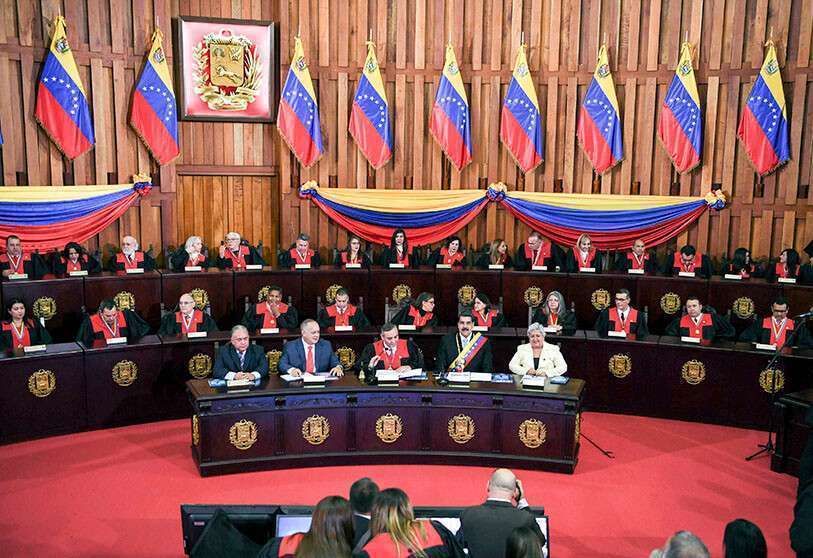
According to this document, the new leadership of the party will be formed by José Gregorio Noriega Figueroa, as president; as well as Guillermo Antonio Luces Osorio, as general secretary and Lucila Angela Pacheco Bravo, as organization secretary. Noriega Figueroa was expelled from the party and accused by some of his colleagues of being bribed by the government. His objective - the sentence states - is to fulfill the "managerial and representative functions of the organization, as well as the designation of regional, municipal and local authorities". In addition, this new board of directors will have the power to "use the electoral card, the logo, symbols, emblems, colors and any other concept specific to the organization," according to the legal document.
After the presidential elections held in 2013, Nicolás Maduro, the candidate chosen by Hugo Chávez, defeated his opponent Henrique Capriles. Two years later, the opposition organized around the Democratic Unity Table (MUD) won the parliamentary elections with a large majority, allowing them to take over two thirds of the Assembly. The transformation was unique since, if until 2015 the power was assumed in almost its entirety by the party of Chavez and Maduro; from the elections of that year the monopoly is broken by the current president and power began to be shared between the Presidency and the Assembly.
On January 10, 2019, Venezuela's political crisis worsened as a result of a communiqué issued by Maduro announcing his intention to begin a second six-year term; a term that was not recognized by either the opposition or a large part of the international community, which considered the elections held on May 20, 2018 in which he had supposedly been elected "a fraud". Faced with this situation, the president of the National Assembly, Juan Guaidó, proclaimed himself "interim president of Venezuela", further increasing the tension between both institutions and worsening the economic, political and social crisis that is punishing the Bolivarian nation, given that the National Assembly, the seat of legislative power, is the only institution controlled by the president's opposition.
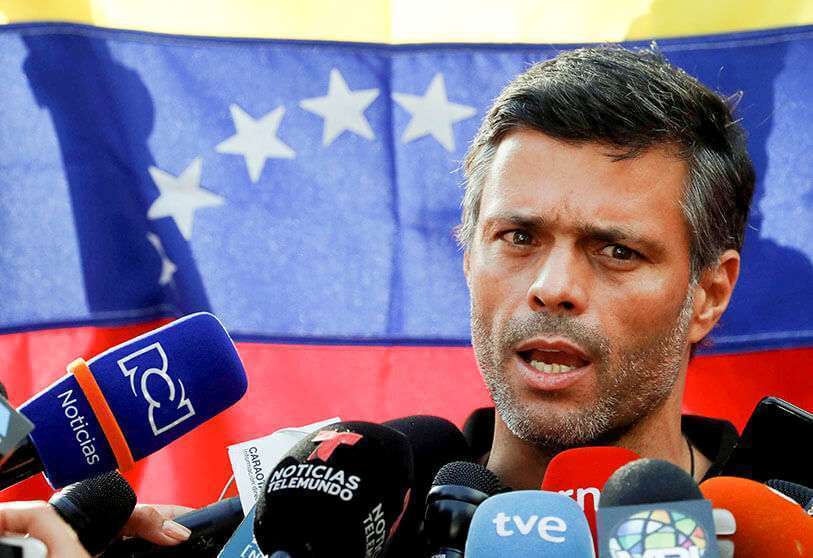
The founder of the Voluntad Popular party accused the ruling TSJ of being a "traitor to the Venezuelan people. Through Twitter, Lopez has said that he believes he is doing the right thing and "being on the right side of history," after "the drug traffickers who are being persecuted by international justice, with arrest warrants and million-dollar rewards; that those guilty of so many deaths and suffering of innocent people" have made the decision to disqualify the board from its political formation. "The Voluntad Popular party is not defined by traitors imposed by the dictatorship, but by the memory of our fallen brothers in the struggle, the sacrifice of political prisoners and those who have had to go into exile, and the courage of those who fight in the streets of Venezuela," he has also defended via Twitter.
In addition, one of the main opposition figures has warned that "the dictatorship is not willing to measure itself in free elections. That means its exit from power. Today we clearly ratify: The Voluntad del Pueblo party will not validate the electoral farce that the dictatorship plans to do to generate more frustration and disbelief in the vote". For these reasons he has announced that his position is "that one cannot fight for free elections by participating in electoral frauds and farces organized by those who seek to silence the will of the people. "Our party, faithful to the struggle for freedom in Venezuela, does not obey dictatorial impositions," he said.
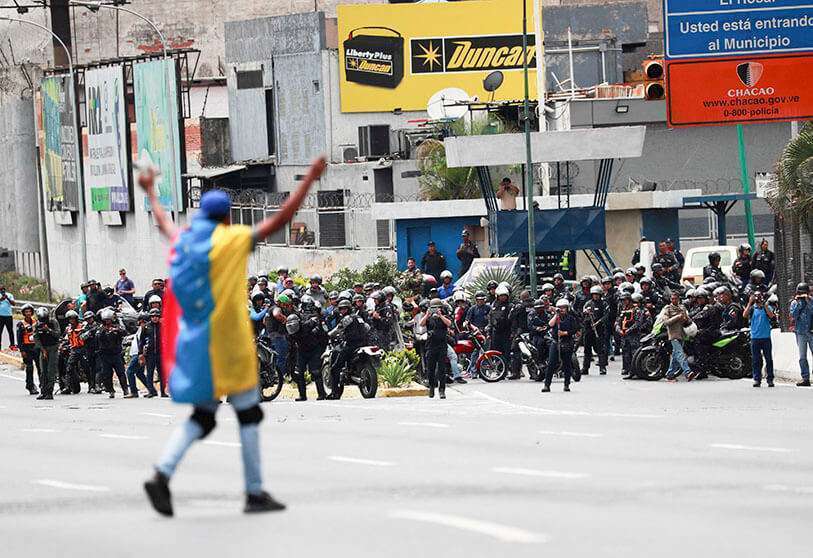
To conclude, he clarified that his position is to "maintain his struggle in a firm manner", despite the dangers and the ultimate consequences. "From El Nula to Tucupita, from Caracas to Puerto Ayacucho, from prison or exile, no activist of the Popular Will will rest until Venezuela is free," he said.
This condemnation has also been joined by the Democratic Unity Table of Venezuela, the coalition with which they ran in the last elections, which has shown its support for the party and has described the disqualification of its leaders as "a new arbitrary action of Nicolas Maduro's regime". "The TSJ kidnapped the card, the symbols and emblems of the orange political party in order to hand them over to a usurper and careerist directive," he added.
"It's not the logo, symbols, colors or a polling card. We are the will of a people that does not surrender or bend, no matter what we have to face, our commitment is the freedom of Venezuela. No sentence will put an end to our ideals," defended Liseth Sibiada, regional leader of the Voluntad Popular party.
The president of the National Assembly, Juan Guaidó, has also expressed his opinion via Twitter. "The dictatorship has been at war for years against the People's Will because of its rebellion, because it fights for a possible country and defends the dignity of our people," he said before warning that "neither the judicial arm of the dictatorship nor its accomplices will be able to handle that. No one inside or outside of Venezuela will lend themselves to farce". The Venezuelan National Communication Center issued a statement after learning of the news blaming Maduro for "persecuting and violating the rights of the democratic forces that fight daily for the dignity of the country".
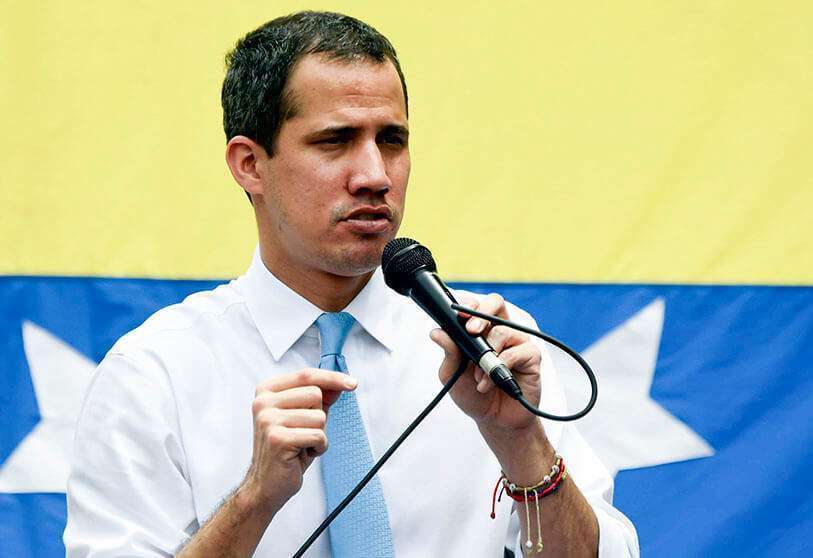
In the same line, the representative in the United States of the president of the National Assembly, Juan Guaidó, Carlos Vecchio has rejected this decision, alleging that "the dictatorship believes that by handing over our party to traitors who sold out to Maduro's corruption and organized crime, it will make Venezuelans believe the story that the opposition parties endorse his fraud". Fabiana Rosales, wife of Guaidó, has also joined in the criticism and called on the population to overcome fear and despair. "We have always been together, in the clear conviction of building the best country, of serving our people, of overcoming fear and despair, of fighting until we conquer it," she stressed.
The disqualification of Leopoldo López and other great opposition figures came a week after the president of Venezuela's National Electoral Council (CNE), Indira Alfonzo, announced that elections would be held this year, despite criticism from much of the international community. Previously, this body had unanimously approved the rules for these elections and increased the number of deputies eligible to be elected to the National Assembly to 277. This new regulation increases by 66 percent the number of positions to be elected in this Assembly, from 167 deputies to 277, "to achieve a balance in the electoral system".
The controversy surrounding the elections has resurfaced in Venezuela. Meanwhile, the government headed by Nicolás Maduro has ratified its Minister of Defense, Vladímir Padrino, as well as the Chief of Staff of the Strategic Operational Command, Remigio Ceballos. Maduro has also announced the renewal of the commanders of the Army, Navy and Military Aviation. "I have decided, a partial ratification and renewal of the extraordinary team of military leaders who lead the military high command of Venezuela, that's why I have decided to ratify General in chief Vladímir Padrino as Minister of the People's Power for Defense and Admiral in chief Remigio Ceballos as strategic operational commander," he said during a graduation ceremony of cadets.
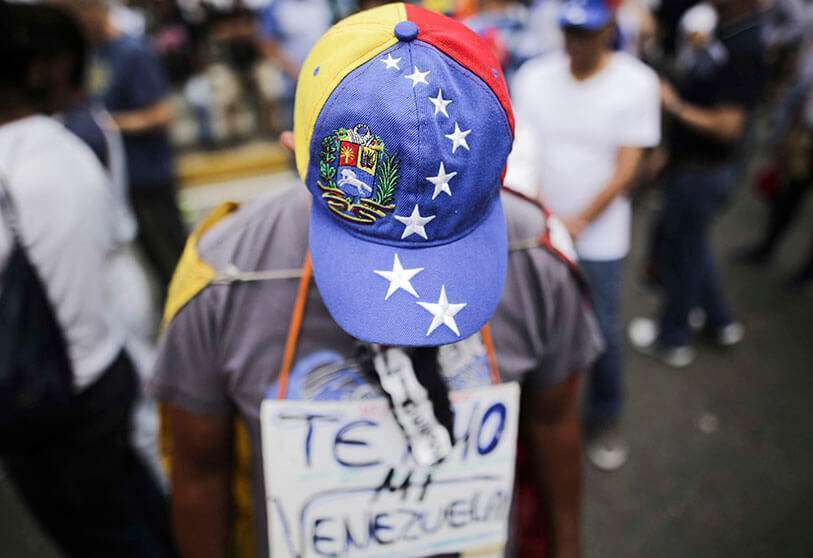
Likewise, the UN High Commissioner for Human Rights has denounced this week the human rights violations in the Latin American nation and has observed that "the recent decisions of the Supreme Court of Justice diminish the possibility of building conditions for credible and democratic electoral processes", referring to the appointment of new rectors "without the consensus of all political forces"..








